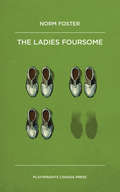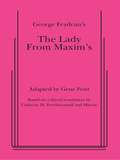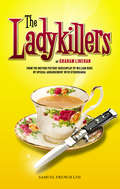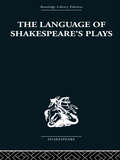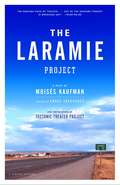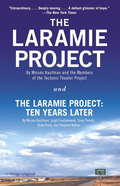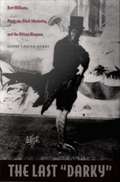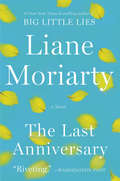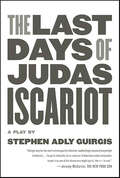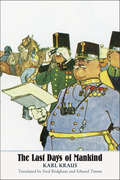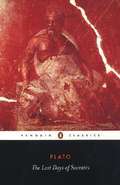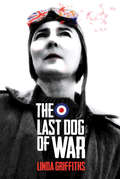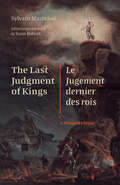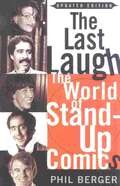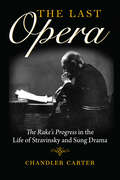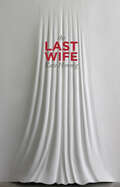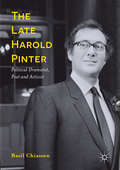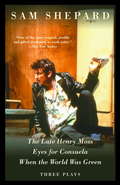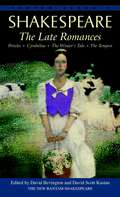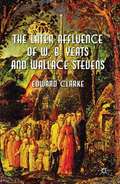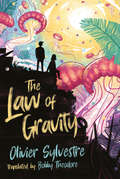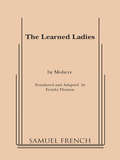- Table View
- List View
The Ladies Foursome
by Norm FosterThe day after their friend Cathy’s funeral, Margot, Tate, and Connie gather for a round of golf in honour of their recently departed fourth. There, they are joined by another woman, an old friend of Cathy’s they’d never met. Over the course of eighteen holes, secrets and confessions unravel as the women discuss love, sex, children, and everything in between. A funny, fast-paced, heartwarming story of friendship inspired by The Foursome.
The Lady from Maxim's
by George FeydeauFarce / 5m, 4f, extras / Unit set A normally sober doctor awakens to find that he brought two things home from Maxim's last night: a hangover and a lady of the evening. His wife is diverted from discovering the tart by one of her famous visitations from a popular saint. The doctor's uncle returns after a long army tour in Africa and promptly mistakes the lady from Maxim's for his nephew's wife. Uncle's immediate business is marrying off a niece to a young soldier who turns out to be the true lover of the lady from Maxim's. Everybody is invited to the ceremony at the uncle's chateau where all courses collide. The master of bedroom farce unravels the confusion happily and innocently. The New York production featured witty original songs scored for piano which may be used at the producer's discretion. . "A well made funny bedroom farce." N.Y. Post
The Ladykillers
by William Rose Graham LinehanThe Ladykillers is a classic black comedy; a sweet little old lady, alone in her house, is pitted against a gang of criminal misfits who will stop at nothing. Posing as amateur musicians, Professor Marcus and his gang rent rooms in the lopsided house of sweet but strict Mrs Wilberforce. The villains plot to involve her, unwittingly, in Marcus' brilliantly conceived heist job. The police are left stumped but Mrs Wilberforce becomes wise to their ruse and Marcus concludes that there is only one way to keep the old lady quiet. With only her parrot, General Gordon, to help her, Mrs Wilberforce is alone with five desperate men. But who will be forced to face the music?
The Language of Shakespeare's Plays
by B. I. EvansFirst published in 1952. This volume explores the function of verse in drama and the developing way in which Shakespeare controlled the rhetorical and decorative elements of speech for the dramatic purpose. The Language of Shakespeare's Plays explores the plays chronologically and so covers all the outstanding problems of Shakespearian language in a way that makes reference easy, without any loss of a continuing narrative.
The Laramie Project
by Moises KaufmanOn October 7, 1998, a young gay man was discovered bound to a fence in the hills outside Laramie, Wyoming, savagely beaten and left to die in an act of hate that shocked the nation. Matthew Shepard's death became a national symbol of intolerance, but for the people of Laramie the event was deeply personal, and it's they we hear in this stunningly effective theater piece, a deeply complex portrait of a community.
The Laramie Project and The Laramie Project: Ten Years Later
by Moises Kaufman Andy Paris Tectonic Theater Project Greg Pierotti Leigh FondakowskiOn October 7, 1998, a young gay man was discovered bound to a fence outside Laramie, Wyoming, savagely beaten and left to die in an act of brutality and hate that shocked the nation. Matthew Shepard’s death became a national symbol of intolerance, but for the people of the town, the event was deeply personal. In the aftermath, Moisés Kaufman and members of the Tectonic Theater Project went to Laramie and conducted more than 200 interviews with its citizens. From the transcripts, the playwrights constructed an extraordinary chronicle of life in the town after the murder. Since its premiere, The Laramie Project has become a modern classic and one of the most-performed theater pieces in America. <P> Now, in this expanded edition, The Laramie Project: Ten Years Later adds an essential sequel to the original work. Revisiting the town a decade after the tragedy, the troupe finds a community grappling with its legacy and its place in history. The two plays together comprise an epic and deeply moving theatrical cycle that explores the life of an American town over the course a decade.
The Last "Darky": Bert Williams, Black-On-Black Minstrelsy, and the African Diaspora
by Louis Chude-SokeiThe Last "Darky" establishes Bert Williams, the comedian of the late nineteenth century and early twentieth, as central to the development of a global black modernism centered in Harlem's Renaissance. Before integrating Broadway in 1910 via a controversial stint with the Ziegfeld Follies, Williams was already an international icon. Yet his name has faded into near obscurity, his extraordinary accomplishments forgotten largely because he performed in blackface. Louis Chude-Sokei contends that Williams's blackface was not a display of internalized racism nor a submission to the expectations of the moment. It was an appropriation and exploration of the contradictory and potentially liberating power of racial stereotypes. Chude-Sokei makes the crucial argument that Williams's minstrelsy negotiated the place of black immigrants in the cultural hotbed of New York City and was replicated throughout the African diaspora, from the Caribbean to Africa itself. Williams was born in the Bahamas. When performing the "darky," he was actually masquerading as an African American. This black-on-black minstrelsy thus challenged emergent racial constructions equating "black" with African American and marginalizing the many diasporic blacks in New York. It also dramatized the practice of passing for African American common among non-American blacks in an African American-dominated Harlem. Exploring the thought of figures such as Booker T. Washington, W. E. B. Du Bois, Marcus Garvey, and Claude McKay, Chude-Sokei situates black-on-black minstrelsy at the center of burgeoning modernist discourses of assimilation, separatism, race militancy, carnival, and internationalism. While these discourses were engaged with the question of representing the "Negro" in the context of white racism, through black-on-black minstrelsy they were also deployed against the growing international influence of African American culture and politics in the twentieth century.
The Last Anniversary: A Novel
by Liane MoriartyFrom Liane Moriarty, author of the #1 New York Times bestsellers Big Little Lies and Truly Madly Guilty, comes an unforgettable novel defined by her signature sharp wit, page-turning storyline, and lovable and eccentric characters.Sophie Honeywell always wondered if Thomas Gordon was the one who got away. He was the perfect boyfriend, but on the day he was going to propose, she broke his heart. A year later he married his travel agent, while Sophie has been mortifyingly single ever since. Now Thomas is back in her life because Sophie has unexpectedly inherited his aunt Connie's house on Scribbly Gum Island—home of the famously unsolved Munro Baby mystery.Sophie moves onto the island and begins a new life as part of an unconventional family, where it seems everyone has a secret. Grace, a beautiful young mother, is feverishly planning a shocking escape from her perfect life. Margie, a frumpy housewife, has made a pact with a stranger, while dreamy Aunt Rose wonders if maybe it's about time she started making her own decisions.As Sophie's life becomes increasingly complicated, she discovers that sometimes you have to stop waiting around—and come up with your own fairy-tale ending.
The Last Days of Judas Iscariot: A Play
by Stephen Adly GuirgisFrom one of our most admired playwrights, "an ambitious, complicated and often laugh-out-loud religious debate" (Toby Zinman, The Philadelphia Inquirer)Set in a time-bending, seriocomically imagined world between Heaven and Hell, The Last Days of Judas Iscariot is a philosophical meditation on the conflict between divine mercy and human free will that takes a close look at the eternal damnation of the Bible's most notorious sinner. This latest work from the author of Our Lady of 121st Street "shares many of the traits that have made Mr. Guirgis a playwright to reckon with in recent years: a fierce and questing mind that refuses to settle for glib answers, a gift for identifying with life's losers and an unforced eloquence that finds the poetry in lowdown street talk. [Guirgis brings to the play] a stirring sense of Christian existential pain, which wonders at the paradoxes of faith" (Ben Brantley, The New York Times).
The Last Days of Mankind
by Karl Kraus Edward Timms Fred BridghamOne hundred years after Austrian satirist Karl Kraus began writing his dramatic masterpiece, "The Last Days of Mankind "remains as powerfully relevant as the day it was first published. Kraus's play enacts the tragic trajectory of the First World War, when mankind raced toward self-destruction by methods of modern warfare while extolling the glory and ignoring the horror of an allegedly "defensive" war. This volume is the first to present a complete English translation of Kraus's towering work, filling a major gap in the availability of Viennese literature from the era of the War to End All Wars. Bertolt Brecht hailed "The Last Days" as the masterpiece of Viennese modernism. In the apocalyptic drama Kraus constructs a textual collage, blending actual quotations from the Austrian army's call to arms, people's responses, political speeches, newspaper editorials, and a range of other sources. Seasoning the drama with comic invention and satirical verse, Kraus reveals how bungled diplomacy, greedy profiteers, Big Business complicity, gullible newsreaders, and, above all, the sloganizing of the press brought down the Austro-Hungarian Empire. In the dramatization of sensationalized news reports, inurement to atrocities, and openness to war as remedy, today's readers will hear the echo of the fateful voices Kraus recorded as his homeland descended into self-destruction.
The Last Days of Socrates: Euthyphro - The Apology - Crito - Phaedo
by Hugh Tredennick Harold Tarrant PlatóThe trial and condemnation of Socrates on charges of heresy and corrupting young minds is a defining moment in the history of Classical Athens. In tracing these events through four dialogues, Plato also developed his own philosophy, based on Socrates' manifesto for a life guided by self-responsibility. Euthyphrofinds Socrates outside the courthouse, debating the nature of piety, while The Apologyis his robust rebuttal of the charges of impiety and a defence of the philosopher's life. In the Crito, while awaiting execution in prison, Socrates counters the arguments of friends urging him to escape. Finally, in the Phaedo, he is shown calmly confident in the face of death, skilfully arguing the case for the immortality of the soul. Hugh Tredennick's landmark 1954 translation has been revised by Harold Tarrant, reflecting changes in Platonic studies, with an introduction and expanded introductions to each of the four dialogues.
The Last Dog of War
by Linda GriffithsIn 2005 Linda made a trip with her father to the last reunion of his RAF comrades, the 49th Squadron, Bomber Command. Intertwining her father’s experiences of a long-ago war with the war between a father and daughter, Linda Griffiths unveils an emotional chronicle of a family navigating a familiar yet foreign relationship.
The Last Judgment of Kings / Le Jugement dernier des rois: A Bilingual Edition (Scènes francophones: Studies in French and Francophone Theater)
by Sylvain Maréchal (1750-1803)First performed the day after Marie-Antoinette’s beheading, Le Jugement dernier des rois stages the burlesque trial of the remaining kings and queens of Europe—paraded in chains like animals, made to brawl over a barrel of crackers, and finally obliterated by a spectacular volcanic eruption. Such is the shocking context—at once tragic and farcical—of the most infamous play of the French Revolution, familiar to all specialists of the period. Until now, however, no standalone critical edition or English translation of this historic play existed. This bilingual edition revives Maréchal’s play and reveals its centrality to scholarly debates about Revolutionary notions of justice, religion, commemoration, comedy, and propaganda. Provocative, written in accessible prose, and short—perfect for students in a French or history seminar—Le Jugement dernier des rois offers an ideal introduction to the most important and contentious questions of the Revolutionary period. Joué pour la première fois le lendemain de l’exécution de Marie-Antoinette, Le Jugement dernier des rois met en scène le procès burlesque des autres rois et reines d’Europe : exhibés et enchaînés tels des animaux, contraints de se battre pour un tonneau de biscuits, et finalement anéantis par l’éruption spectaculaire d’un volcan. Tel est le contexte scandaleux—tragédie et farce à la fois—de la pièce la plus célèbre de la Révolution française, bien connue de tous les spécialistes de cette période. Jusqu’à maintenant, pourtant, il n’existait ni édition critique ni traduction anglaise de cet ouvrage historique. Notre édition bilingue fait revivre la pièce de Maréchal et la replace au centre des plus grands débats chez les historiens de la Révolution, traitant de justice, religion, commémoration, comédie, et propagande. Provocateur, facile à lire, et concis—parfaitement adapté aux étudiants d’un cours de français ou d’histoire—Le Jugement dernier des rois propose ainsi une introduction idéale à la période révolutionnaire et à ses principales controverses. Published by Bucknell University Press. Distributed worldwide by Rutgers University Press.
The Last Laugh: The World of Stand-Up Comics
by Phil BergerThe Last Laugh is the first and only book to take readers deep into the bizarre universe of the standup comic, from the classic years of Milton Berle, Sid Caesar, and Shecky Greene, to today's comedy superstars. Phil Berger shows how styles and trends in standup have changed over the past fifty years, but how taking the stage in a comedy club is as tough as it's always been. Performers profiled in the book include Woody Allen, Lenny Bruce, George Carlin, Elaine Boosler, Robert Klein, Bill Cosby, Billy Crystal, Dick Gregory, Andy Kaufman, Steve Martin, Cheech and Chong, Eddie Murphy, and a host of others. Filled with comics' hilarious routines and anecdotes, this substantially updated edition also chronicles the lives and careers of more recent artists, including Richard Lewis and Jay Leno.
The Last Opera: <I>The Rake’s Progress</I> in the Life of Stravinsky and Sung Drama (Russian Music Studies)
by Chandler CarterFrom the fall of 1947 through the summer of 1951 composer Igor Stravinsky and poet W. H. Auden collaborated on the opera The Rake’s Progress. At the time, their self-consciously conventional work seemed to appeal only to conservative audiences. Few perceived that Stravinsky and Auden were confronting the central crisis of the Modern age, for their story of a hapless eighteenth-century Everyman dramatizes the very limits of human will, a theme Auden insists underlies all opera. In The Last Opera, Chandler Carter weaves together three interlocking stories. The central and most detailed story explores the libretto and music of The Rake’s Progress. The second positions the opera as a focal point in Stravinsky's artistic journey and those who helped him realize it—his librettists, Auden and Chester Kallman; his protégé Robert Craft; and his compatriot, fellow composer, and close friend Nicolas Nabokov. By exploring the ominous cultural landscape in which these fascinating individuals lived and worked, the book captures a pivotal twenty-five-year span (from approximately 1945 to 1970) during which modernists like Stravinsky and Auden confronted a tectonic disruption to their artistic worldview. Ultimately, Carter reveals how these stories fit into a larger third narrative, the 400-year history of opera. This richly and lovingly contextualized study of The Rake’s Progress sheds new light on why, despite the hundreds of musical dramas and theater pieces that have been written since its premier in 1951, this work is still considered the "the last opera."
The Last Wife
by Kate HennigKate Parr is smart, confident, and passionate: a rising star in a world of intense competition. But her obligatory marriage to Henry is rife with the threat of violence and the lure of deceit; her secret liaisons with Thom, her husband’s former brother-in-law, could send her to an early grave; and her devotion to the education and equal rights of Henry’s daughters is putting an even bigger strain on her marriage. Does Kate risk her life to gain authority in both her relationship and her political career? Which love will she be led to if she follows her heart? And what kind of future is there for her children if she makes a crucial mistake?
The Late Harold Pinter
by Basil ChiassonThis volume is the first to provide a book-length study of Pinter's overtly political activity. With chapters on political drama, poetry, and speeches, it charts a consistent tension between aesthetics and politics through Pinter's later career and defines the politics of the work in terms of a pronounced sensory dimension and capacity to affect audiences. The book brings to light unpublished letters and drafts from the Pinter Archive in the British Library and draws his political poems and speeches, which have previously been overshadowed by his plays, into the foreground. Intended for students, instructors, and researchers in drama and theatre, performance studies, literature, and media studies, this book celebrates Pinter's later life and work by discerning a coherent political voice and project and by registering the complex ways that project troubles the divide between aesthetics and politics.
The Late Henry Moss, Eyes for Consuela, When the World Was Green: Three Plays
by Sam ShepardThese three plays by Pulitzer Prize winner Sam Shepard are bold, explosive, and ultimately redemptive dramas propelled by family secrets and illuminated by a searching intelligence. In The Late Henry Moss--which premiered in San Francisco, starring Sean Penn and Nick Nolte--two estranged brothers confront the past as they piece together the drunken fishing expedition that preceded their father's death. In Eyes for Consuela, based on Octavio Paz's classic story "The Blue Bouquet," a vacationing American encounters a knife-toting Mexican bandit on a gruesome quest. And in When the World Was Green, cowritten with Joseph Chaikin, a journalist in search of her father interviews an old man who resolved a generations-old vendetta by murdering the wrong man. Together, these plays form a powerful trio from an enduring force in American theater.
The Late Romances: Pericles, Cymbeline, The Winter's Tale, The Tempest
by William ShakespeareThe first of Shakespeare's late romances moves spectacularly from one dramatic period to another as the hero, Pericles, sails off to adventure and love, and experiences what for him is a miracle. Cymbeline: A favorite romantic drama, this play of a wife unjustly accused of faithlessness moves from a world of intrigue and slander to one of reconciliation and forgiveness, and contains two of Shakespeare's most poignantly beautiful songs. The Winter's Tale: From a darkly melodramatic beginning to a joyous pastoral ending, this romance of a jealous king and his long-suffering queen is superb entertainment, with revelations, plot twists, and a final compelling theatrical moment of discovery. The Tempest: This tale of the exiled Duke of Milan, marooned on an enchanted island, is so richly filled with music and magic, romance and comedy, that its theme of love and reconciliation offers a splendid feast for the senses and the heart.
The Later Affluence of W. B. Yeats and Wallace Stevens
by Edward ClarkeSurveying the later work of W. B. Yeats and Wallace Stevens, Edward Clarke unfolds their very last poems and considers the two poets' relations with western literature and tradition. This book shows how these two latecomers transform the ways in which we read earlier poets.
The Law of Gravity
by Olivier SylvestreDom has had a rough go of things so far. At fourteen, he has the hardened look of someone who’s had to fight for everything. Fred has just moved to Not-The-City, a new place to try to disappear. But he didn’t expect to actually make friends. He just hopes he’s accepted for how he looks. When Dom and Fred meet on a hill overlooking a bridge that connects Not-The-City to The City, a place where anyone can be anything they want, the two find a refuge in one another and make a pact: they’ll cross the bridge at the end of the school year. They’ll be free. What could happen by then? Who will they be? And will the bridge even let them cross?
The Learned Ladies
by Freyda Thomas MoliereThis rollicking version of Les Femmes Savantes delighted audiences Off Broadway in a production starring Jean Stapleton as Philamente, a most unliterary lady intent on having a high toned literary salon. She has neither literary nor common sense, which makes her easy prey for sycophantic con artist Trissotin. He passes himself off as a famous poet and becomes a permanent house guest. Philamente hopes to marry her daughter to Trissotin, but the daughter wishes to marry the unsuitable Clitandre. This version strays from a strictly literal translation of Moliere's play, often employing anachronisms in the rhymed couplets that will appall purists and absolutely delight everyone else. If you want your audiences to roll with laughter as they watch a play by a "famous dead playwright," this version is for you.
